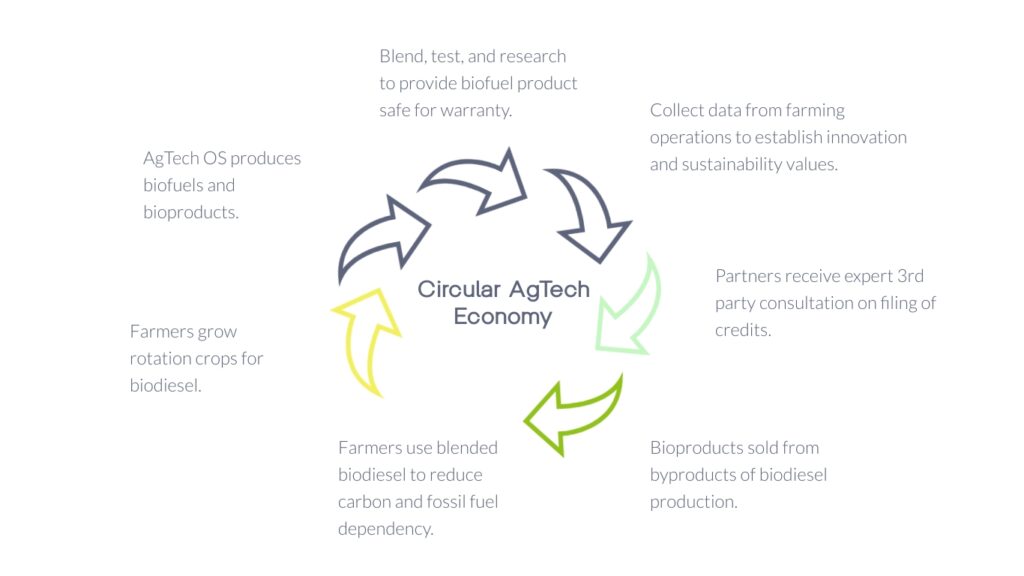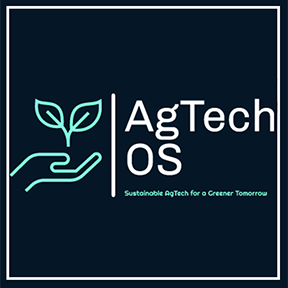AgTech OS is a value-added agriculture technology company at the intersection of traditional farming operations and advanced computer modeling and simulation systems. At its core, the company is positioned to improve the operational economics for agricultural producers while enabling the decarbonization and supporting innovation of farming operations using the Circular AgTech Economy. To meet these ends, AgTech OS is focused on oilseed crops and their utilization to produce feed additives, biodiesel and specialty chemicals. The company will utilize next generation solar technologies to power the operations and leverage advanced measurement, computer modeling, simulation and control systems to optimize production. Moreover, the models developed by AgTech OS powered by NVidia represent a fourth product line that can serve to support industrial operations focused on emissions reductions and real-time process optimization. Collectively the AgTech OS aims for a sustainable net-zero carbon footprint in the efforts to produce biofuels and feed, reducing the environmental impacts of agricultural operations, while providing translatable tools with gen AI for the optimization of industrial and ag production operationshttps://farmfuel.tech/elektronne-kazyno-ukrayiny-na-spravzhni-koshty/

Stay informed about current vaping trends and the latest industry news on our article page. Understanding these trends will deepen your knowledge of this dynamic industry. Visit the article page to explore new products, tips, and fascinating facts from the world of vaping.
Explore the state-of-the-art solutions from the Ukrainian brand KMA in industrial equipment. This article from our partner will showcase the variety and advantages of the company’s innovative technologies for your business.

